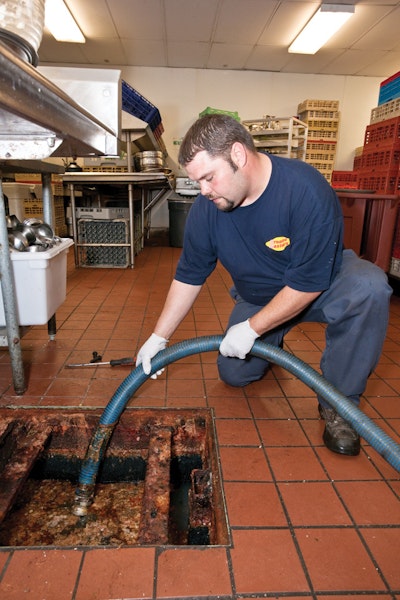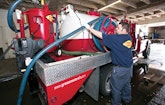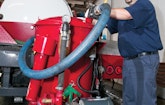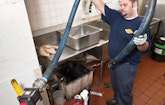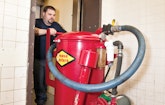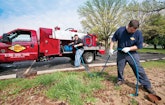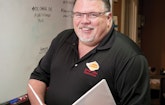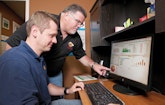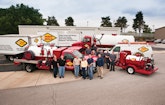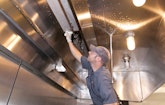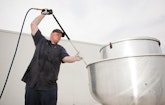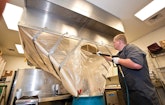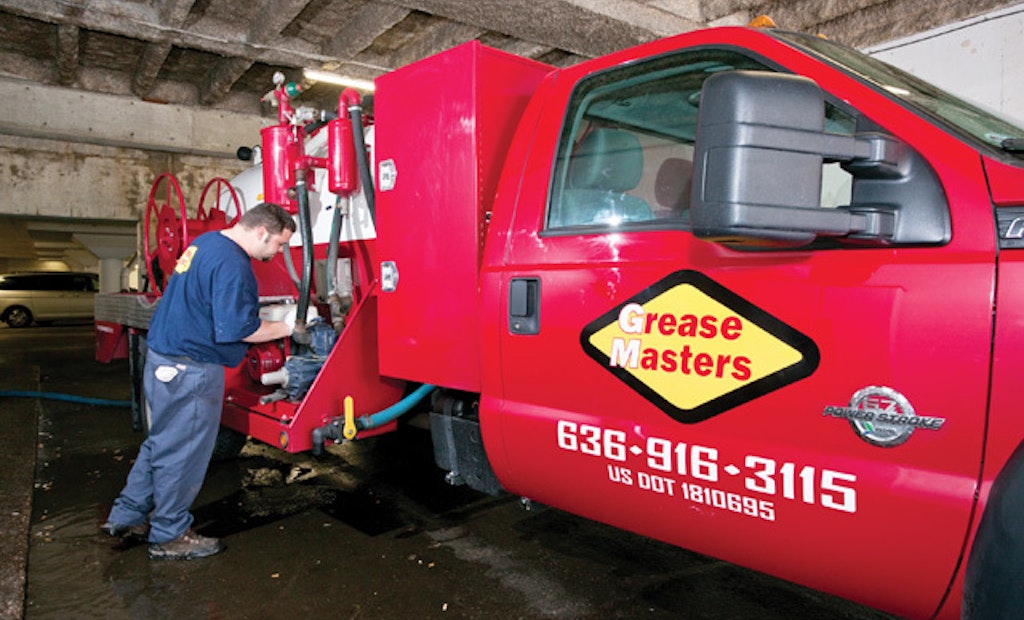Interested in Onsite Systems?
Get Onsite Systems articles, news and videos right in your inbox! Sign up now.
Onsite Systems + Get AlertsBetween 2006 and 2010, Grease Masters – founded by John and Pam Remstedt in suburban St. Louis – doubled its gross sales every year. Even during the worst economic recession on record.
“And we’re on pace to grow another 70 percent this year,” says John, who co-owns the company with his wife and a silent partner.
To achieve those results, the couple relies on a simple premise: Face-to-face contact with customers builds better relationships. And they combine the face time with an emphasis on using modern, well-maintained equipment and attracting and retaining experienced, service-oriented technicians.
Getting Personal
“People don’t want paper relationships based on just work orders and invoices,” he says. “We have two sales people who know their job is to not only get an account, but to keep it. That means stopping in every so often to meet with managers, just to say ‘hi’ and see how things are going.
“I very much believe that if you’re not out talking to your customers, they’ll jump ship to the next guy that walks in the door,” he continues. “People in the restaurant business will leave for a competitor over a $5 difference in price. So you have to convince them your level of service is so much better that they stay with you, regardless of price.
Adds Pam: “We believe that personal contact – putting a name with a face – makes customers feel more comfortable. They know they can pick up the phone and ask for someone personally.”
That emphasis on personal contact includes virtually everything at Grease Masters, right down to where the couple and their employees go out for lunch or dinner.
“We always try to eat at restaurants we service,” says Pam, noting that 40 percent of the company’s sales come from cleaning grease traps in restaurants, plus schools and nursing homes. Another 30 percent stems from cleaning exhaust hoods in restaurants; line jetting makes up the balance of the business.
“We make a point of leaving our business card or talking to the manager so they know we were there,” she adds. “Last week, we ordered pizza for lunch in the office, and when someone went to pick it up, I sent along a business card with a little note on the back, letting them know we ordered food there and to please give us a call if they need anything.”
Graduating to Grease
John initially got into the field by working for a portable restroom outfit in St. Louis that cleaned grease traps in winter to minimize off-season layoffs. Later, he formed a grease-trap cleaning business of his own with a friend. Remstedt eventually left the company after signing a three-year, no-compete agreement.
Since the agreement prevented him from cleaning grease traps, Remstedt shrewdly did the next best thing: He cleaned restaurant kitchen exhaust hoods. That allowed him to continue servicing many of the same restaurant customers he had before, and maintain those valuable business contacts.
Startup costs were fairly minimal, and the only other requirement was a one-week certification class sponsored by the International Kitchen Exhaust Cleaning Association (www.ikeca.org).
The good relationships Remstedt developed during his grease-trap cleaning days helped out big-time when the no-compete period expired. “When I walked in the door, it was like, ‘Hey, where have you been?’ ” he recalls of the reaction when he started promoting grease trap service again.
Disposal of grease is less of an issue for the Remstedts than many haulers nationwide. Grease trap waste is dumped at the local treatment plant for 8 cents per gallon. The price would have to rise 5-6 cents per gallon for the company to start looking at dewatering or recycling alternatives. Another contractor hauls the yellow grease for their customers.
Grease Masters gets frequent calls from would-be processors who want to set up shop in St. Louis, but to date none of the companies offering to pay for the waste has materialized.
“One company locally takes it from a (grease hauler) and runs it through a centrifuge and burns it as fuel oil, but almost everyone takes it to the treatment plant because it’s so cheap (to dispose of),’’ Remstedt says. “Our costs in the Midwest are so low compared to the East and West Coasts. If it starts to cost more money, people will start to look for alternative methods.’’
Educating Customers
Personal relationships involve education, too, Pam says. “From the person who answers our telephone to our technicians, we’re all constantly trying to educate our customers,” she notes.
The biggest component of that education is getting customers to buy into the concept of scheduled maintenance. Local laws require many of the company’s customers to get grease traps cleaned once every three months, but that doesn’t mean they do it, John says.
“As such, we’re always talking to them about regular maintenance,” he says, noting that scheduled maintenance makes it easier to control the company’s work flow, as opposed to unexpected emergency calls at the worst possible time – like a holiday weekend.
“We don’t want customers to wait until there’s a problem to call us,” he says. “I always emphasize that the money they’ll spend on an emergency call will be more than what they would’ve spent on an annual maintenance program. Some customers still resist … but it generally sinks in after the second or third emergency call.”
Grease Masters technicians hand out brochures that explain best grease-trap practices for kitchens. John says he also offers short training courses for kitchen managers about how to avoid grease-trap problems.
Taking the time to educate customers and develop good relationships also bears fruit in another area: prioritizing jobs. Emergency calls always get top priority over scheduled maintenance, but customers don’t mind getting their scheduled maintenance postponed if good relationships already exist.
“I always tell them that if you had an emergency, I’d take care of you first, too,” he says. “They’re good with it 99 percent of the time.”
Pam points out another personal touch that adds value: When technicians see a problem aside from the one they’re fixing, they write it down on the job’s work order. When Grease Masters sends out an invoice for the work, it includes a note that details the problem, and asks the customers to contact Grease Masters for a bid.
Good Equipment, Good Image
Technologically advanced and well-maintained equipment also enhances business relationships because they enable technicians to do their jobs quickly and effectively, which promotes customer retention.
“If you have lousy equipment, you start to fit into the industry stereotype – a dirty guy with a dirty truck. But if you show up with clean trucks and uniformed technicians, it creates a professional impression,” John says.
To service customers, Grease Masters relies on a 250-gallon Dyna-Lite grease trap pump trailer with a 55-gallon mini-vac, both made by Dyna-Vac Equipment; a 2005 Mack Vision truck with a 4,000-gallon steel tank, built by National Truck Center and equipped with a full-tilt bed and a waterjetter made by Advance Pump & Equipment Inc. (4 1/2 gpm at 3,000 psi); a 2010 Ford F-550 with an aluminum 700-gallon waste/300-gallon freshwater tank, built by Dyna-Vac; and a 2006 Freightliner 26-foot box truck with a 10-gpm pressure washer with dual guns, and a 600-gallon steel slide-in tank unit from Dyna-Vac and a liftgate, outfitted in-house.
The company also owns two Spartan 100 cable machines from Spartan Tool to clean outgoing lines on inside grease traps; an Electric Eel cable drain-cleaning machine (for cleaning up to 10-inch-diameter lines), made by Electric Eel Manufacturing Company Inc.; an Electric Eel pipeline inspection camera; and a Super-Vee hand-held drain cleaning machine for smaller-diameter lines, manufactured by General Pipe Cleaners.
“Customers want turn-key operations – one guy who can do it all and take care of everything,” John says, explaining his diverse array of equipment. “That’s something we pride ourselves on. You never want to have to tell a customer, ‘No, I can’t do that.’ If you do, they’ll go find someone else.”
Spreading the Word
To get the word out about Grease Masters’ services, Pam says the company relies less on phone book advertising and more on the Internet, word-of-mouth references and the company’s sales staff.
“We’ve had a website since we started,” she says. “It’s hard to put a number to it, but I think it’s generating as much business as our Yellow Pages. Except for older people, more and more people are Googling the service they’re looking for, as opposed to using a phone book.
“If we get calls from new customers, we ask where they heard about us,” she adds. “I’d say that three out of five calls say they found us on the Internet.”
Pam says the company website adds value for customers. For example, customers are required by law to track grease trap service in a logbook, and they can download a cleaning log from the Grease Masters website. In addition, the company can set up a program where customers log in to see before and after photos of grease trap and exhaust hood cleanings.
“We do that because we deal with a lot of facilities managers who aren’t local,” John says. “Now it doesn’t matter if they’re based in Timbuktu. The pictures are time- and date-stamped to provide proof that we did what we said we did.
“That’s important because sometimes a grease trap overflows a day after we clean it because we didn’t know the outgoing line was also partially clogged,” he points out. “When that happens, the customer thinks we didn’t actually clean out the trap. With photos, we have proof that we did the job properly. It’s huge in terms of just liability alone.”
The photos also help John diagnose and document problems with grease traps without having to visit a jobsite, saving valuable time.
Values Independence
John is passionate about what he does.“I always wanted to run my own business because I wanted the freedom to be my own boss,” he says. “But it’s not always what it’s cracked up to be. Everyone thinks you have unlimited freedom, but that’s not true. You don’t have to work if you don’t want to … but if you don’t work, there’s no money coming in and you can’t pay your vendors, bills and employees.”
John says Pam tends to slow down his shoot-first, aim-later style. “If I’m going too fast, she plays devil’s advocate and slows me down,” he says. “She’ll do a list of pros and cons, while I’m all pros. She’s a good con to my pro.”
